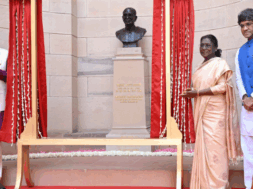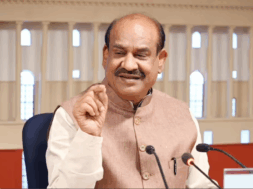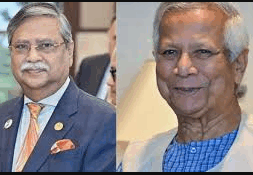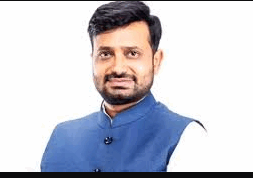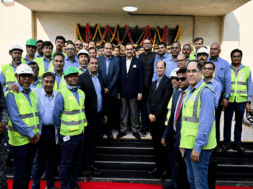
Modi-led NDA government has stood by the marginalised, One election can’t take that away
(Guru Prakash)
April 5, 2016, marked a significant point in India’s political history. While launching the Stand Up India initiative to empower SC, ST, and women entrepreneurs in Uttar Pradesh, Prime Minister Narendra Modi paid tribute to Babu Jagjivan Ram, senior Congress leader, for his relentless service to the nation. His portrait was on stage as the PM addressed the gathering. There has never been a more important time to launch an initiative of this kind to commemorate and modernise Babu’s legacy. Jagjivan Ram was born on April 5, 1908.
This non-partisan government policy under Modi called for a renewed focus on social justice as an enabler for all empowerment. Be it paying tributes and prostrating before the Central Hall of Parliament, the Constitution, celebrating Constitution Day, or enabling representation from socially disadvantaged sections of society, we need to look deeper into how social justice has been an important anchor for the Government of India under the NDA, now in its third term.
There is a lot of media chatter about the shift of Dalit votes to the INDI alliance, especially in a crucial state like UP, in the recently concluded general elections. While this is true, we cannot overlook the government’s unwavering commitment to ensuring social justice. Given that a week is a long time in politics, we cannot completely rule out the possibility of the BJP-led NDA regaining the lost votes in the mid- to long-term. However, we must acknowledge that social justice continues to play a crucial role in elections, governance, and policy. No political party can afford to ignore it.
Since assuming power in 2014, the BJP-led NDA has demonstrated a renewed and imaginative focus on commemoration and representation of the marginalised. Let us focus on a few examples from the present and past. Consider Mohan Manjhi, the newly sworn-in Chief Minister of Odisha, in the BJP’s first government in the state. He is a four-time MLA and a tribal leader. His deep connection with the tribal brethren of the state has catapulted him to this position today. History must also record the Congress’s opposition to Droupadi Murmu’s election as India’s first tribal president. It is also important to remember, President Murmu visited the inner sanctum sanctorum of the Ram Temple in Ayodhya, an area in any temple that is known to be visited by people of only certain communities. G C Murmu, a tribal, is India’s Comptroller and Auditor General (CAG) and one of India’s finest bureaucrats. This may well be one of the high points in independent India’s history for tribal representation in the high echelons of power. In line with this, the union government has already decided to celebrate 2025 as Janjaitya Gaurav Varsh to honour the 150th birth anniversary of tribal icon Birsa Munda.
Jitan Ram Manjhi, the young warrior at 80, refuses to give up. His electoral success in Bihar is also due to the careful social justice coalition that the NDA under PM Modi and CM Nitish Kumar managed to stitch together in time for the general elections in 2024. After losing in 2014 and 2019, Manjhi defied the odds to win the seat this time around. The veteran Dalit leader hails from the slighted Musahar community in Bihar, and his political career represents the most remarkable rise of any politician in India’s history. Today, he is the Union Minister for MSMEs in India. This is not the first time that the NDA has brought Dalits into the mainstream political narrative as intellectual capital. In 2001, under PM Vajpayee, the then Government of India released a stamp to honor the lesser-known Rani Jhalkaribai. Dalits and OBCs occupying crucial portfolios in the Union Cabinet is an indication of the sum and substance of social justice in the BJP-led NDA government. Modi 3.0 is a continuation of social justice-led empowerment.
Before 2015, November 26 was known as just law day. It was during the first term of this government that it began to be celebrated as Constitution Day. Coincidentally, this decision coincided with the 125th anniversary of Ambedkar’s birth. If there are two words that perhaps best summarise our foundation as a civilizational nation-state, they are “constitutional democracy”. Our Constitution and the Supreme Court, which stands as one of its best interpreters, have set a powerful example for the world. Constitution Day serves as a gentle reminder to all citizens that they ought to not only read the Constitution, but also put it into practice. We must applaud the Indian government and PM Modi for this innovative initiative, which undoubtedly reaffirms the inviolability of the Indian constitution and its crucial provisions, like reservations, that empower the marginalised. The day is also a tremendous source of the country’s soft power. It gives India a wonderful vantage point because it can communicate the foundational values of the Constitution that have guided us till date, which are justice, equality, fraternity, and liberty, from an Indian point of view, not just domestically but globally.
From these key examples, it is clear that the BJP in the last decade has decisively emerged as more than just a “Brahmin-Bania” party. It continues to resolutely fulfill its moral obligation to include OBCs, Dalits, tribals, backward, and most backward communities in its ambit of policies, affirmative action, and governance, even at the risk of losing its “traditional” voters. Since 2014, the Centre has operated under the dictum that the people should not come to the government but instead the government should go to the people, especially the marginalised sections of society. One election cannot determine or evaluate the party or the government’s commitment to social justice; it calls for careful and impartial analysis of the enabling agency and empowerment of the marginalised, which remains a success story in itself thus far but a definite work in progress.
(Guru is National Spokesperson BJP and assistant professor. Sudarshan is policy expert and author. Views expressed are their own)




